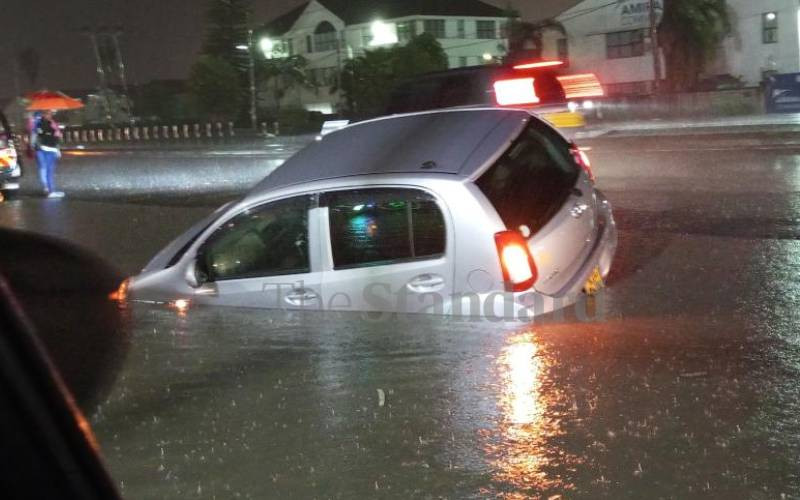The disbanding of the Kenya National Examinations Council (Knec) board should be just a first step in reforming the national examinations system.
Examinations, despite their unpopularity, are likely to be with us for a long time to come. No one has given us a better alternative, so deep-rooted reforms are necessary.
The reforms should start by asking a very fundamental question: Why is Knec a monopoly? Can we give our children a choice? If we can choose churches and hospitals, why not examiners?
The monopoly status is the first problem with the examinations body. Most monopolies abuse their privileges. Why is the nation’s most important resource, our young brains, under a monopoly?
The affluent in Kenya have a choice — they can take their children through IGCSE or IB systems, which rarely report leakages. Why can’t we give the masses a choice? Is choice not one of the cornerstones of democracy?
Monopolies breed corruption. The police score high in corruption because they are a monopoly. Corruption and monopolies are great buddies.
One simple but effective solution to reforming Knec is to give it competition. The council should become a regulator, and anyone who satisfies specific regulations should be allowed to offer exams. This will create competition and reduce cheating. Examiners whose exams leak will lose students.
Under threat
Must we have national exams? Canada and the US have no national exams, yet we copied the 8-4-4 system of education from Canada, and some sections of our Constitution from the US. Australia also has no national exams; they are run under states.
South Korea, Japan and Singapore have national exams. In Japan, they have prefectural exams in Grade 9. A prefecture corresponds to a county in Kenya. They have national exams at Grade 12 and face entrance tests conducted by individual universities. Just as in economics, we seem torn between East and West in examining our children.
The problem goes beyond the board. Knec’s integrity is under threat from ICT. To be fair to it, though, examinations worldwide are under threat from ICT.
Some examining bodies, such as the Graduate Management Admission Council (GMAC), went online a long time ago and are not too worried about distribution, which could be a major source of leakages. Imagine an exam making the 500-kilometre journey from Nairobi to Mandera or Migori, and the number of people handling it.
Exam leakages through phones were widely reported last year. Why not follow the ‘sambazaring’ trail to the origin? We can use the same technology used to leak exams to catch the culprits.
The sooner leakages are sealed, the better for our children and the economy. Employers and potential universities could lose faith in our education system because of persistent leakages.
Leakages are expensive to parents and students, as employers and universities demand further examinations to ‘confirm’ test scores.
Stay informed. Subscribe to our newsletter
That is why applicants to some foreign universities ask for additional tests, such as GMAT and SAT, which are not cheap. Employers take potential employees through aptitude tests. Leakages also dilute the national brand.
Intellectual fakes
Student with fake grades lower productivity in workplaces because the market is not always efficient in identifying intellectual fakes. If the fakes are ‘protected’, good employees usually leave.
Can Knec use ICT to conduct exams now that our curriculum is being digitised? This would be cheaper, more efficient and could reduce leakages.
Others have suggested we reconstitute the East African Examinations Council and have the same exams done across the region. Such co-operation could greatly reduce leakages. West Africa has such tests.
Knec replaced the defunct East African Examinations Council in 1977. It is an open question why East Africans killed such supranational organisations when they were most needed.
The hiring of staff at the council should also be reformed. An institution is only as good as its workers. Computers or mobile phones do not leak exams — human beings do.
In the long run, exam leakages affect the productive capacity of the nation. Ideally, exams should identify your intellectual acumen and match it to the best courses at certificate, diploma or degree level.
If there is a mismatch, productivity suffers, as does the whole economy. Since we all work in networks, inefficiency in one sector is shared.
Dissolving the Knec board is just one step. More needs to be done to restore the integrity of our exams and let them play their role in signalling to the market the talents, motivations and aspirations of the next generation.
It may be time to reform our entire education system in line with the 2010 Constitution, Vision 2030 and the gales of globalisation.
The writer is senior lecturer, University of Nairobi School of Business. [email protected]
 The Standard Group Plc is a
multi-media organization with investments in media platforms spanning newspaper
print operations, television, radio broadcasting, digital and online services. The
Standard Group is recognized as a leading multi-media house in Kenya with a key
influence in matters of national and international interest.
The Standard Group Plc is a
multi-media organization with investments in media platforms spanning newspaper
print operations, television, radio broadcasting, digital and online services. The
Standard Group is recognized as a leading multi-media house in Kenya with a key
influence in matters of national and international interest.
 The Standard Group Plc is a
multi-media organization with investments in media platforms spanning newspaper
print operations, television, radio broadcasting, digital and online services. The
Standard Group is recognized as a leading multi-media house in Kenya with a key
influence in matters of national and international interest.
The Standard Group Plc is a
multi-media organization with investments in media platforms spanning newspaper
print operations, television, radio broadcasting, digital and online services. The
Standard Group is recognized as a leading multi-media house in Kenya with a key
influence in matters of national and international interest.





